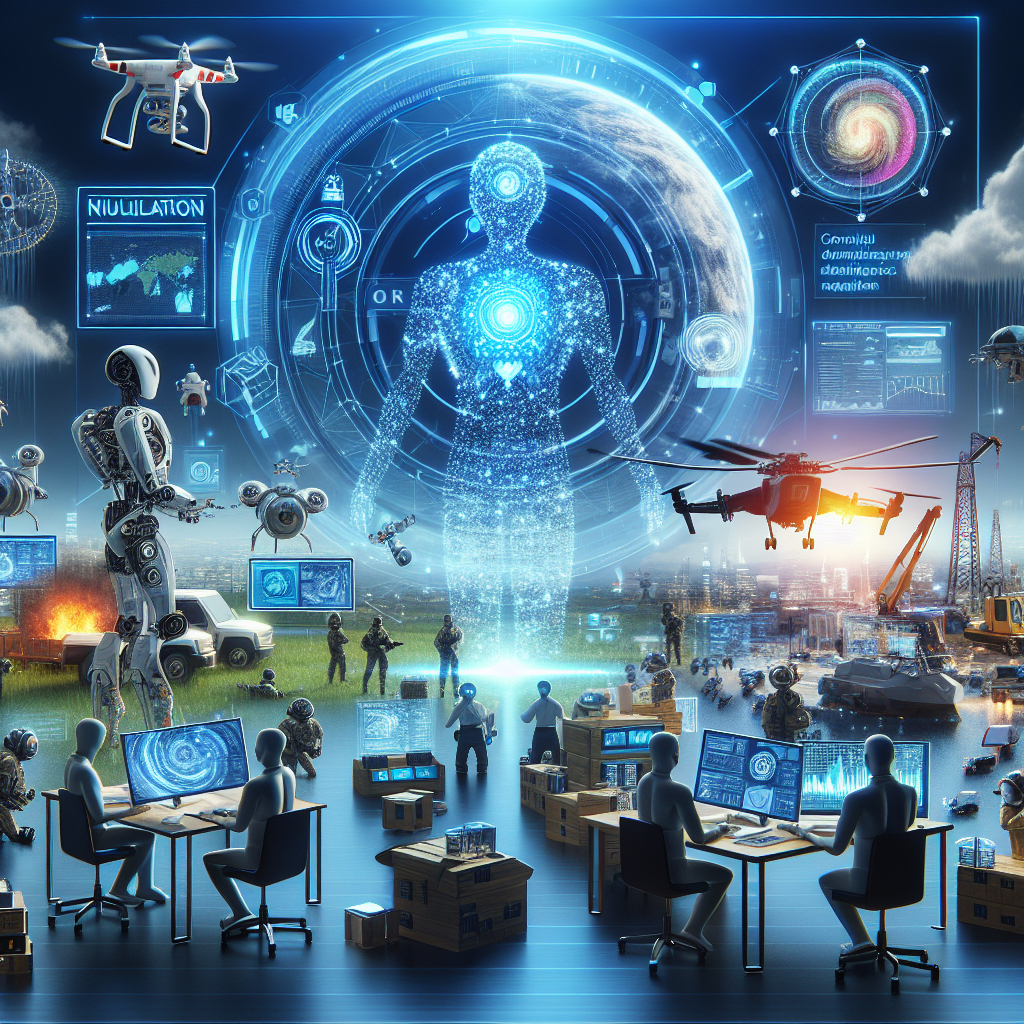In recent years, the world has witnessed an increase in the frequency and severity of natural disasters. From hurricanes and earthquakes to wildfires and pandemics, these catastrophic events have had devastating impacts on communities around the globe. In the face of such challenges, the role of AI consulting in disaster preparedness and response has become increasingly important.
AI consulting refers to the use of artificial intelligence technologies and algorithms to help organizations analyze data, make predictions, and automate processes. In the context of disaster management, AI consulting can play a crucial role in helping governments, NGOs, and other organizations better prepare for and respond to emergencies.
One of the key benefits of AI consulting in disaster preparedness is its ability to process large amounts of data quickly and accurately. In the event of a disaster, organizations often face a deluge of information from various sources, including weather forecasts, satellite imagery, social media posts, and emergency calls. AI algorithms can sift through this data in real-time to identify patterns, trends, and anomalies that can help emergency responders make more informed decisions.
For example, AI consulting can be used to analyze satellite imagery to assess the extent of damage caused by a hurricane or earthquake. By identifying areas that are most severely affected, emergency responders can prioritize their resources and deploy assistance where it is needed most. Similarly, AI algorithms can analyze social media posts to identify individuals who may be in distress and in need of assistance.
In addition to data analysis, AI consulting can also help organizations automate certain processes to improve their efficiency and effectiveness in disaster response. For example, AI-powered chatbots can be used to provide real-time information to affected populations, answer frequently asked questions, and connect individuals to emergency services. Similarly, AI algorithms can be used to optimize supply chains and logistics, ensuring that critical supplies and resources are delivered to affected areas in a timely manner.
Furthermore, AI consulting can help organizations improve their predictive capabilities, allowing them to anticipate and prepare for future disasters more effectively. By analyzing historical data and trends, AI algorithms can help identify high-risk areas, vulnerable populations, and potential hazards, enabling organizations to develop more targeted and proactive disaster preparedness plans.
Overall, the role of AI consulting in disaster preparedness and response is crucial in helping organizations leverage the power of artificial intelligence to enhance their capabilities, improve their efficiency, and save lives in times of crisis. By harnessing the potential of AI technologies, organizations can better prepare for and respond to disasters, mitigate their impact, and ultimately, build more resilient communities.
FAQs:
Q: What is AI consulting?
A: AI consulting refers to the use of artificial intelligence technologies and algorithms to help organizations analyze data, make predictions, and automate processes.
Q: How can AI consulting help in disaster preparedness and response?
A: AI consulting can help organizations process large amounts of data quickly and accurately, automate processes, improve predictive capabilities, and enhance overall efficiency in disaster response.
Q: What are some examples of AI consulting in disaster management?
A: Examples of AI consulting in disaster management include analyzing satellite imagery to assess damage, using chatbots to provide real-time information, optimizing supply chains and logistics, and predicting future disasters based on historical data.
Q: How can organizations benefit from AI consulting in disaster preparedness?
A: Organizations can benefit from AI consulting in disaster preparedness by improving their data analysis capabilities, automating processes, enhancing predictive capabilities, and ultimately, saving lives in times of crisis.

